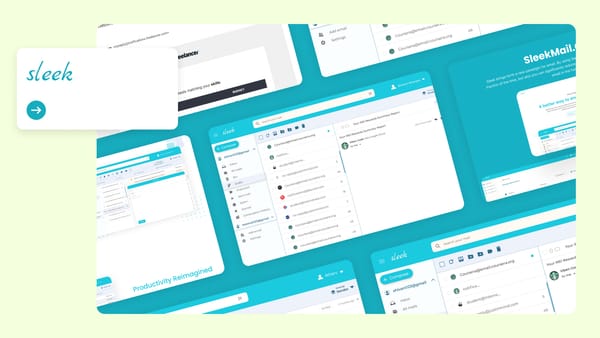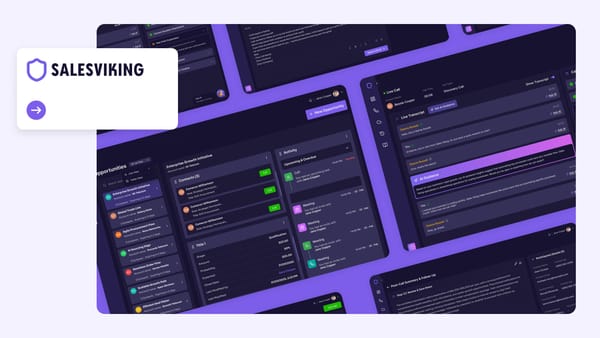Artificial Intelligence: A Turning Point for Startups in 2024

Artificial Intelligence (AI) has emerged as a game-changer in recent years, revolutionizing various sectors, including healthcare, finance, and transportation. However, it is in the startup ecosystem that AI is expected to make its largest impact. In 2024, AI is set to become a turning point for startups, enabling them to optimize their operations, enhance customer experiences, and unlock new opportunities for growth.
Understanding the Rise of Artificial Intelligence
Before delving into how AI will transform startups in 2024, it is crucial to establish a clear understanding of what AI is. Artificial Intelligence refers to the simulation of human intelligence in machines that are programmed to think and learn like humans. It encompasses a wide range of technologies, including machine learning, natural language processing, and computer vision.
Defining Artificial Intelligence
Artificial Intelligence refers to the ability of machines to perform tasks that typically require human intelligence. This includes tasks like problem-solving, decision-making, and language understanding. AI systems are designed to analyze vast amounts of data, identify patterns, and make predictions or recommendations based on the gathered insights.
Artificial Intelligence has been a topic of fascination and research for decades. The concept of creating machines that can mimic human intelligence has captivated scientists and engineers alike. The field of AI has seen tremendous growth and development, with researchers constantly pushing the boundaries of what is possible.
One of the key components of AI is machine learning. Machine learning algorithms allow AI systems to learn from data and improve their performance over time. These algorithms are designed to automatically identify patterns and adjust their behavior accordingly. This ability to learn from experience and data is what sets modern AI apart from traditional rule-based systems.
The Evolution of AI Over the Years
AI has come a long way since its inception. Initially, AI was limited to rule-based systems that followed predefined instructions. These early AI systems were able to perform specific tasks, but they lacked the ability to adapt and learn from new information.
However, with advancements in technology and the availability of large datasets, AI has evolved into more sophisticated systems that can learn from data and adapt to changing circumstances. The introduction of machine learning algorithms has been a game-changer for AI.
Machine learning algorithms enable AI systems to analyze large amounts of data and identify patterns that humans may not be able to detect. This allows AI systems to make predictions or recommendations based on the insights gained from the data. The more data an AI system has access to, the better it becomes at making accurate predictions.
Another significant development in AI is the advancement of natural language processing (NLP) and computer vision. NLP allows AI systems to understand and interpret human language, enabling them to communicate with users in a more natural and intuitive way. Computer vision, on the other hand, enables AI systems to analyze and understand visual information, opening up new possibilities for applications in fields such as healthcare, transportation, and entertainment.
As AI continues to evolve, researchers are exploring new frontiers and pushing the boundaries of what is possible. The future of AI holds great promise, with the potential to revolutionize various industries and improve the quality of life for people around the world.
The Impact of AI on the Startup Ecosystem
The integration of AI into startup operations can yield significant benefits. By leveraging AI technologies, startups can streamline their business processes, improve efficiency, and gain a competitive edge in the market.
Revolutionizing Business Operations
AI has the potential to revolutionize various aspects of business operations, from automating repetitive tasks to optimizing resource allocation. Startups can use AI-powered algorithms to analyze data and make informed decisions, leading to increased productivity and cost savings.
For example, AI-powered chatbots can handle customer queries round the clock, reducing the need for human customer support agents. This not only saves costs but also ensures that customers receive prompt and accurate responses to their inquiries. Additionally, startups can employ AI algorithms to automate data analysis, allowing them to make data-driven decisions faster and more accurately. By analyzing large volumes of data, AI can uncover patterns and trends that humans may overlook, providing valuable insights for startups to optimize their operations.
Moreover, AI can play a crucial role in resource allocation. By analyzing historical data and real-time information, AI algorithms can optimize inventory management, supply chain logistics, and production schedules. This enables startups to minimize wastage, reduce costs, and ensure timely delivery of products or services to customers.
Enhancing Customer Experience
AI also has the power to enhance customer experiences, leading to greater customer satisfaction and loyalty. Startups can leverage AI technologies to personalize their offerings, provide targeted recommendations, and deliver more tailored customer service.
By analyzing customer data, AI algorithms can identify individual preferences, predict future needs, and suggest relevant products or services. This level of personalization can significantly improve the overall customer experience, creating a competitive advantage for startups in the market. For instance, e-commerce startups can use AI to recommend products based on a customer’s browsing history, purchase behavior, and demographic information. This not only helps customers discover relevant products but also increases the chances of conversion, ultimately boosting sales for startups.
In addition to personalized recommendations, startups can utilize AI-powered virtual assistants to provide proactive and efficient customer support. These virtual assistants can handle a wide range of customer inquiries, resolve issues, and provide guidance, all in a timely manner. By offering round-the-clock assistance, startups can ensure that customers receive the support they need whenever they need it, leading to higher customer satisfaction and loyalty.
Furthermore, AI can be employed to analyze customer feedback and sentiment analysis. By analyzing social media posts, reviews, and customer surveys, startups can gain valuable insights into customer preferences, pain points, and overall satisfaction levels. This information can then be used to improve products, services, and overall customer experience, further strengthening the relationship between startups and their customers.
Predicting the AI Trends for 2024
Looking ahead to 2024, several AI trends are expected to shape the startup ecosystem. These trends will open up new opportunities for startups while presenting unique challenges that entrepreneurs must navigate.
In order to fully understand the impact of these trends, it is important to delve into the details of the AI technologies that are on the horizon for 2024. One such technology is deep learning, a subset of machine learning that mimics the human brain’s neural networks. Deep learning has the potential to revolutionize various industries by unlocking new possibilities in image and speech recognition, natural language processing, and autonomous systems.
Imagine a world where computers can analyze and interpret images with the same accuracy and speed as the human eye. This would have significant implications for fields such as healthcare, where AI-powered image recognition could aid in the early detection of diseases. Similarly, speech recognition advancements could lead to more sophisticated virtual assistants that can understand and respond to human speech in a more natural and intuitive manner.
Furthermore, the integration of AI into startup business models is expected to be a key trend in 2024. Rather than being a standalone technology, AI will be seamlessly integrated into various aspects of startups’ operations, creating a data-driven culture of innovation and efficiency. Startups that effectively harness AI will gain a competitive advantage by utilizing data insights to drive decision-making, automate processes, and optimize their offerings.
For example, imagine a startup that leverages AI to analyze customer data and predict future trends. By understanding customer preferences and behavior patterns, this startup can tailor their offerings to meet the specific needs of their target audience, ultimately increasing customer satisfaction and loyalty. Additionally, AI-powered automation can streamline internal processes, freeing up valuable time and resources for startups to focus on strategic initiatives.
However, with these opportunities come unique challenges. As AI becomes more prevalent in the startup ecosystem, entrepreneurs must navigate ethical considerations and ensure that AI systems are transparent, fair, and unbiased. The responsible development and deployment of AI technologies will be crucial in building trust with customers and stakeholders.
In conclusion, the AI trends for 2024 are set to reshape the startup ecosystem. Advancements in deep learning and the integration of AI into startup business models will present new opportunities for innovation and efficiency. However, it is important for entrepreneurs to approach these trends with a responsible and ethical mindset, ensuring that AI is used for the benefit of society as a whole.
Challenges and Opportunities for Startups Embracing AI
While the opportunities presented by AI are immense, startups must also overcome a set of challenges to fully capitalize on its potential.
Overcoming the AI Adoption Hurdles
Implementing AI technologies can be challenging for startups, particularly in terms of infrastructure, expertise, and cost. Startups need to invest in robust computing resources, hire AI talent, and develop the necessary infrastructure to support AI applications.
Navigating the complex landscape of AI regulations and ethical considerations is another challenge that startups must address. Building trust and ensuring data privacy and security are critical for successful AI adoption.
Capitalizing on AI-Driven Opportunities
However, for those startups that can overcome these challenges, the opportunities presented by AI are boundless. By embracing AI-driven innovation, startups can gain a competitive edge, identify new markets, and create disruptive business models.
Startups can leverage AI to develop unique products or services, optimize pricing strategies, and identify untapped customer segments. Those that successfully harness AI will be well-positioned for growth and success in the dynamic startup ecosystem of 2024.
Preparing Your Startup for the AI Revolution
To prepare for the AI revolution and fully leverage its potential, startups must take strategic steps to integrate AI into their overall business strategy.
Integrating AI into Your Business Strategy
Startups need to develop a comprehensive AI roadmap that aligns with their long-term goals and objectives. This involves identifying key areas where AI can create the most value and outlining a clear plan for implementing AI technologies.
Moreover, it is essential for startups to foster an AI-friendly culture within their organizations. This involves educating employees about AI, training them to work with AI tools, and encouraging a mindset of continuous learning and experimentation.
Building an AI-Ready Workforce
As AI becomes increasingly prevalent, startups must ensure that they have the right talent to drive their AI initiatives forward. This includes hiring data scientists, AI engineers, and other professionals with expertise in machine learning and AI technologies.
Startups should also invest in upskilling their existing workforce, providing training programs to equip employees with the necessary skills to work alongside AI. By building an AI-ready workforce, startups can maximize the potential of AI technologies and stay ahead of the competition.
In Conclusion
Artificial Intelligence is poised to be a turning point for startups in 2024. By understanding the rise of AI, embracing its potential, and preparing for its adoption, startups can harness the power of AI to transform their operations, enhance customer experiences, and unlock new opportunities for growth.
While challenges exist, the rewards of successfully leveraging AI are immense. Startups that navigate the AI landscape with strategic foresight and embrace AI as a core part of their business strategy will be well-positioned to thrive in the evolving startup ecosystem of 2024.





